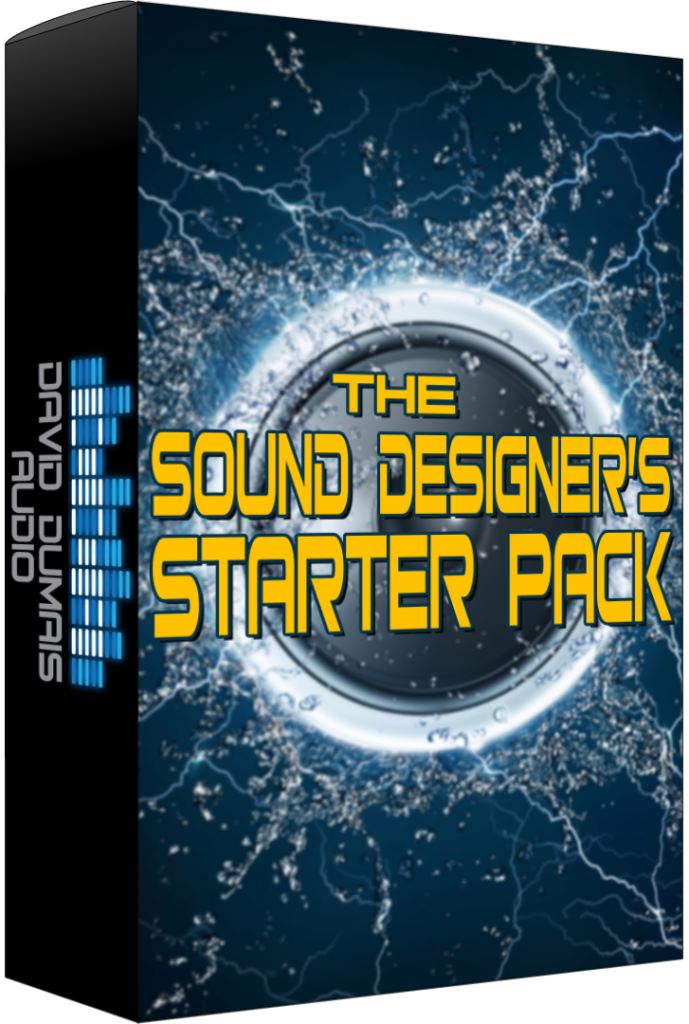If you are like me, you want to continually improve and get better at creating video game sound design. When I got started, I had no experience or knowledge of sound design or where to get started. I found my own way to improve my skills and distilled it down to 3 key elements that have helped me get better over the past 3 years. These are by no means the only ways to get better at sound design, but they are things I have done and still do to this day.
So, how do you get better at video game sound design? Here are 3 tips that have helped me:
- Use a reference sound effect
- Study as many sound designers as possible and apply what you learn
- Record and create your own sound effects
1. Use A Reference Sound Effect
Just as a mixing engineer would use a reference track to balance out the bass with the treble, the volume between the instruments, and to make sure the track sounds good, punchy, and clean, use a reference sound effect as part of your work. Reference a sound effect to balance out the layers, to ensure the bass is centered when appropriate, and to create a good, punchy, and clean sound. Go back and forth between your sound and the reference sound to compare the two.
Having a reference sound effect offers a few other advantages as well. First, it gives your ears a refresh every time you play the reference sound. I know from experience, that it is too easy to work on your sound effect for a long time thinking that it sounds good, only to be disappointed when you refresh your ‘mind’s ear’ by playing the reference sound.
Second, having a reference sound elevates your playing field. It raises your standard and awareness for sound design that is acceptable rather than sound design that isn’t.
As you study and use reference sounds, you will begin to integrate characteristics of professionally produced sounds in your own work.
Finally, having a reference sound gives you the opportunity to replicate or recreate your favorite professionally produced sound design. This is a great way to learn and improve your skills.
Note: Make sure to volume match your sound effect with the reference sound effect so that the change in volume does not mask your perception of the quality of the sound. Louder sounds will always sound better than softer ones.
2. Where To Find A Reference Sound Effect?
You can find reference sound effects pretty much anywhere – a movie, game, youtube video. Just download it, and import it into your DAW. If you prefer, find a sound effect that you really like from your favorite games or movies and use those. This next point may seem obvious, but use reference sounds that are in the same category of sound you are working in. For example, if you are creating sword sounds, use a sword reference sound. If you are creating a monster sound, use a monster reference sound.
Here are a few suggestions of places you can go to find amazing sound design:
- BoomLibrary.com (also join their email list to get free SFX each month)
- Soundmorph.com
- Sonniss.com
3. Study As Many Sound Designers As Possible
Study, learn, and apply what you’ve learned from as many sound designers as possible. Take note of the concepts and techniques that they use. Notice how they think and how they process their sounds. See if they have any unique tricks for obtaining certain effects or results that you could also use in your work.
Here is a list of awesome sound designers on YouTube I like to learn from:
What Other Ways Can I Get Better At Sound Design?
If you want some more suggestions for improving your sound design, here are some more actions you can take.
Record And Create Your Own Sound Effects
Use whatever gear or equipment you have and record your own sound effects. Bring them into your DAW and mangle them up. See what you can create. It will probably sound horrible at first, especially if you have never done this before. Don’t worry though, that’s normal. You will keep getting better and better as you improve and do this over and over again.
Online courses
Take some online courses on sound design. There are many courses out there that focus on different perspectives and take different approaches to creating sound design. Here are a few places you can start looking for online courses:
Take lessons
If you are serious about sound design, you may want to consider getting 1-on-1 lessons from a private teacher. Set up a weekly lesson schedule for 30 minutes to an hour. Having a mentor and teacher is an excellent way to fast track your results.
Work on projects
There is nothing like getting hands-on experience to improve your skills. Working with others, dealing with deadlines, and having some pressure can be enough to push an individual to figure out what it takes to create excellent sound design. Not everyone works well under pressure, but nothing really beats real world experience. CLICK HERE If you want to read more about where and how to find work on projects as a beginner sound designer
Conclusion
Getting better at any skill inevitably takes time and effort, but placing that time and effort in the right direction can help you move faster. Hopefully, these tips for getting better at video game sound design prove useful and beneficial to you in your life and career!
If this was valuable to you, please consider sharing it!
What do you do to improve your sound design skills?
Comment below!
